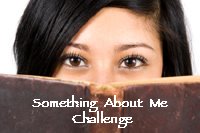 **I read this book from Vasilly's original list. Thanks for the recommendation, Vasilly!
**I read this book from Vasilly's original list. Thanks for the recommendation, Vasilly!There is no other story. A man, after he has brushed off the dust and chips of his life, will have left only the hard, clean questions: was it good or was it evil? Have I done well - or ill? -From East of Eden, page 413-
I have yet to be disappointed by anything John Steinbeck writes ... and East of Eden is no exception.
Set in the heart of the Salinas Valley, the novel spans three generations of two families whose lives overlap - the Trasks and the Hamiltons. Samuel Hamilton, an Irish immigrant and dreamer who believes in the goodness of mankind, raises his family without financial wealth but rich with love and family unity.
He came to Salinas Valley full-blown and hearty, full of in inventions and energy. His eyes were very bulue, and when he was tired one of them wandered outward a little. he was a big man but delicate in a way. In the dusty business of ranching he seemed always immaculate. His hands were clever. He was a good blacksmith and carpenter and woodcarver, and he could improvise anything with bits of wood and metal. -From East of Eden, page 8-9-
Adam Trask descends from wealth, and the conflict of sibling rivalry and moral weakness.
These usually bought land, but good land, and built their houses of planed lumber and had carpets and colored-glass diamond panes in their windows. There were numbers of these families and they got the good land of the valley and cleared the yellow mustard away and planted wheat. Such a man was Adam Trask. -From East of Eden, page 13-
Narrated in the philosophical voice of Samuel's grandson (who flavors this all-American classic with his thoughts and observations of the politics and economics of life in America at the turn of the century), Steinbeck uses the timeless story of Cain and Abel to draw his characters - and with this adds a greater depth to a novel rich with symbolism.
As in all of Steinbeck's novels, the characters drive the story. Lee, a Chinese servant, surprises and delights the reader with his wisdom and gentle nature. Cathy (later Kate) surpasses the stereotypical evil character, allowing reader empathy to exist side by side with revulsion and demonstrating no one is all good or all bad. The overriding message of East of Eden seems to be that man (or woman) are free to choose their path regardless of inheritance or circumstances - in fact, perhaps in spite of them.
And this I believe: that the free, exploring mind of the individual human is the most valuable thing in the world. -From East of Eden, page 132-
Now there are many millions in their sects and churches who feel the order, 'Do thou,' and throw their weight into obedience. And there are millions more who feel predestination in 'Thou shalt.' Nothing they may do can interfere with what will be. But 'Thou mayest'! Why, that makes a man great, that gives him stature with the gods, for in his weakness and his filth and his murder of his brother he has still the great choice. He can choose his course and fight it through and win. -From East of Eden, page 303-
Steinbeck's fine sense of place resonates throughout the novel. It is easy to see why East of Eden is considered his greatest work.
A classic which is a must read, this novel is highly recommended; rated 5/5.

1 comment:
I am reading this as well, and am almost done with it. I'm thoroughly enjoying it. I can't really empathize with Cathy (Kate) at all, though. She seems to me to be a sociopath without redeeming quality. Maybe something will happen later to change my mind, though I'm pretty close to the end. Charles and Cal, however, seem to have both evil and good within them. The Cain and Abel parallels can be drawn in both those storylines.
Post a Comment